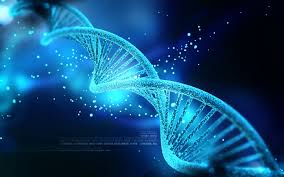Eating is something we all do many times a day. Whether we eat a Big Mac or an organic kale salad topped with the latest superfood, it all gets broken down by our digestive system into its component parts, which then make their way into our blood stream to be used by the body for a myriad of things, including: immediate energy (helpful when running for the bus!), making new cells, repairing damaged ones, forming enzymes to help us detoxify things like drugs and alcohol, and making neurotransmitters that relay information through our body and brain.
What many of us don’t know is that the food we eat is much more than just the sum of its parts, like calories, carbohydrates, fats and proteins. Food is information. Food speaks to our genes – it turns them on and off. There are millions of molecules of information in every bite of food that get translated by our genes into cellular instructions.

These instructions are what control our health and disease patterns. In other words, what we eat programs our bodies with messages of health or messages of disease. That Big Mac or superfood-topped kale salad can move us towards health or towards illness. This is the fascinating world of nutrigenomics, where our environment and how we live our lives intersects with our genetic makeup.
Many of today’s most challenging, costly and debilitating conditions are now seen as being closely tied to the mismatch between our genetic predisposition and our lifestyle and dietary habits. Conditions such as heart disease, stroke, type 2 diabetes, many cancers, digestive disorders, autoimmune diseases, neurodegenerative conditions and numerous endocrine and immune problems have all been linked to inappropriate nutrition. I use the term “inappropriate” because each of us is unique, both in terms of genetics, as well as in terms of the the environmental and dietary context of our lives. We all process foods and utilize nutrients differently, so what is appropriate and works best for me may not be at the top of the list for you.
Good nutrition is one of the most powerful health interventions available. It is foundational for the prevention and treatment of disease, but it often isn’t easy to incorporate into our day-to-day lives. This is where a Holistic Nutritionist comes in. In conjunction with your health care team, a holistic nutritionist creates a plan that is personalized to your situation, your specific health concerns and test results, daily real-life roles and responsibilities, habits and hobbies. If an eating plan doesn’t have any basis in how you actually live, it won’t be sustainable for you, and so your genes will continue to get the wrong information, leading you away from health and towards disease. There is an incredible amount of conflicting nutritional information out there, not to mention the confusing and overwhelming “health-washing” done by corporations and institutions. Your Holistic Nutritionist is your ally in health—there to help you decode labels and guidelines, identify and integrate sensible, sustainable practices as well as to provide support, education and guidance so that food is not an obstacle to cure, but a partner in health.
